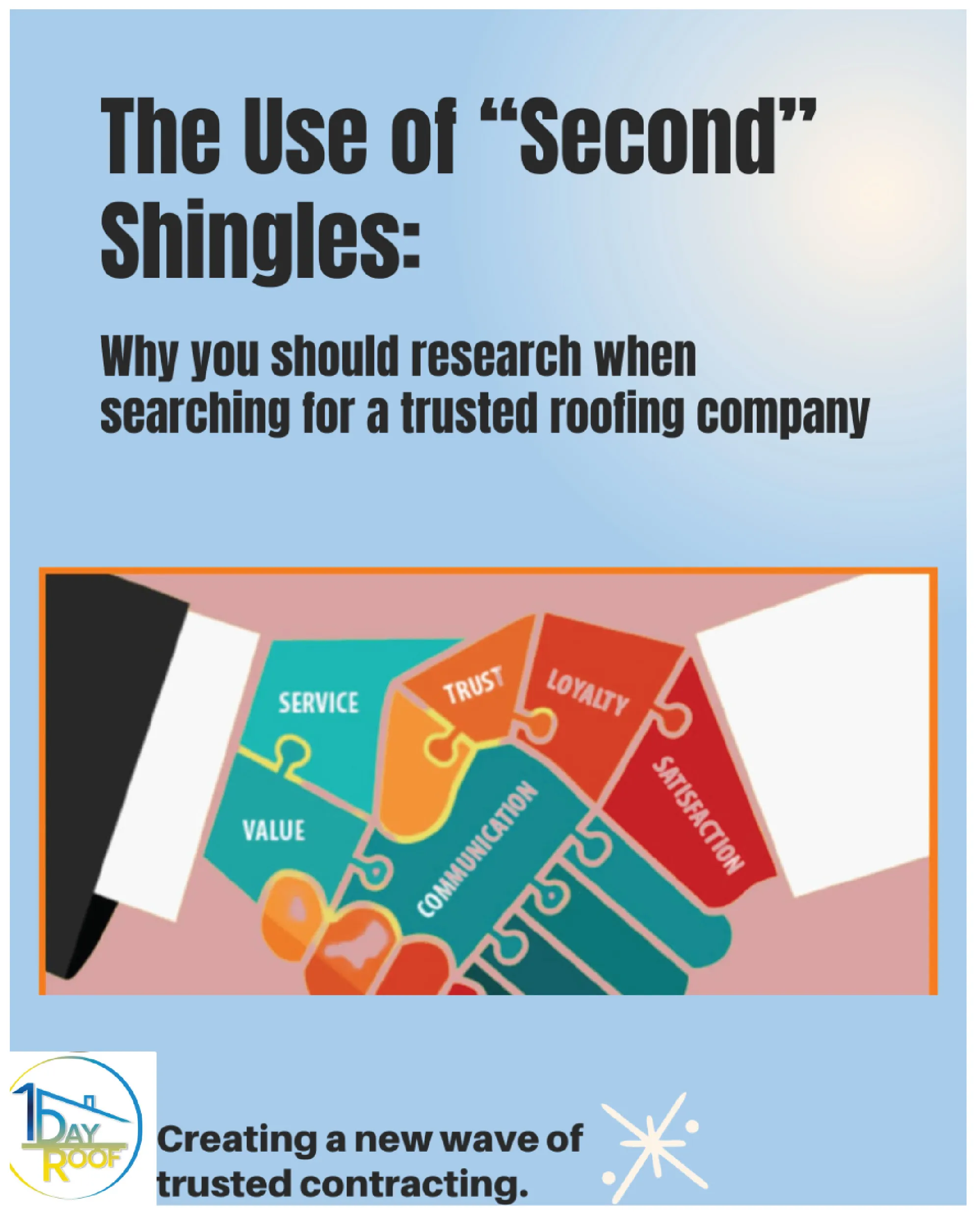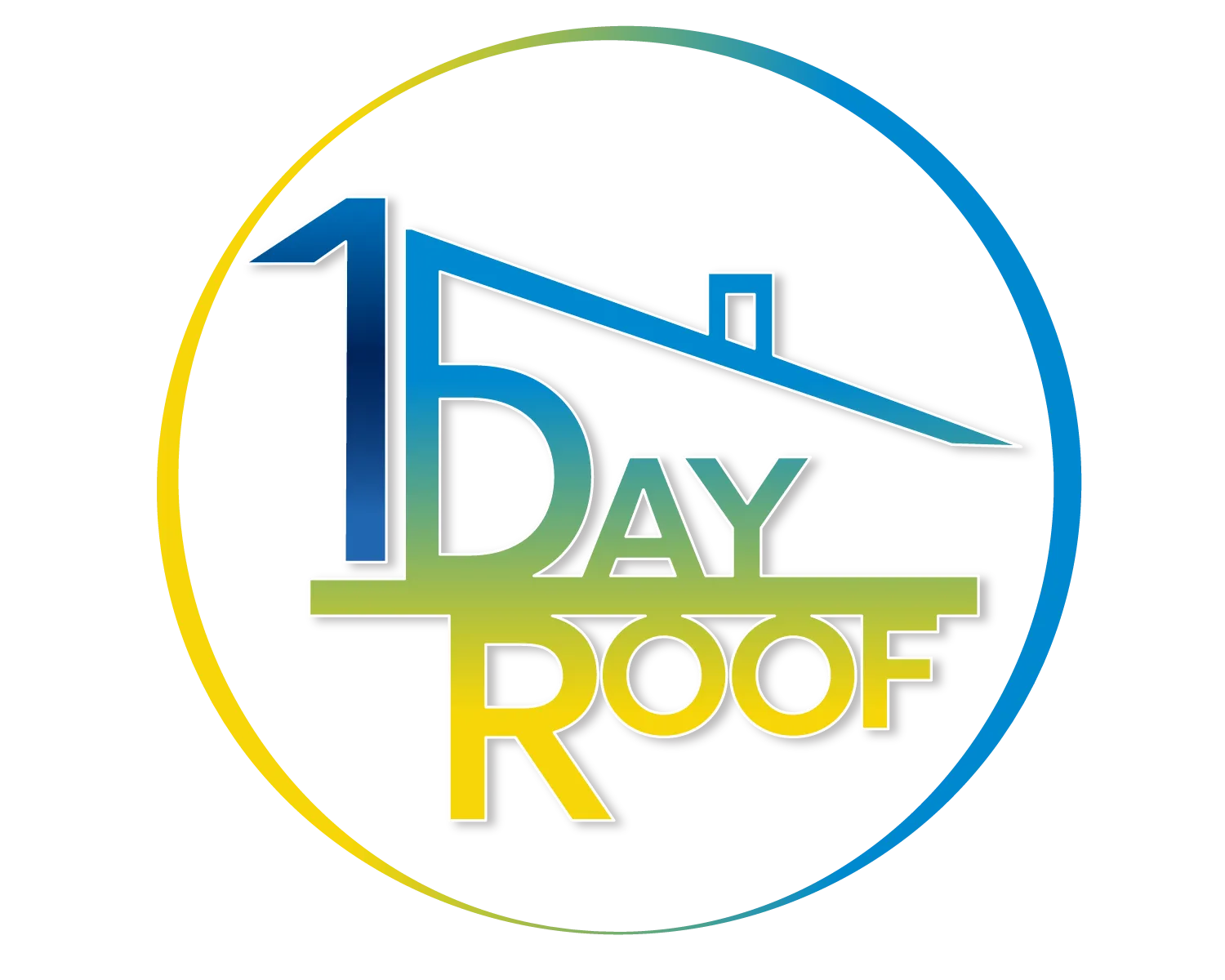The Use of Second Shingles: Why you should research when searching for a trusted roofing company
Your home’s roof is its first line of defense against the elements. A sturdy, well-installed roof not only protects your property but also enhances its curb appeal and value. Roofing companies play a crucial role in ensuring that your roof is built to last. However, not all roofing companies have the same ethical standards, and some resort to using “second” shingles with defects. In this blog, we will explore the dark side of roofing and shed light on the practices of companies that cut corners by using subpar roofing materials.

The Problem with “Second” Shingles
“Second” shingles, also known as factory seconds or defective shingles, or B quality shingles, are roofing materials that did not pass quality control during the manufacturing process. These shingles may have cosmetic imperfections, structural flaws, or both, making them less reliable and durable compared to their first-quality counterparts. While it might seem like a cost-effective solution for roofing companies, the use of second shingles can have severe consequences for homeowners. GAF, Owens Corning, and most shingle brands have B grade or second shingles. Just because they hold a name does not mean they are an A quality or first quality shingle.
Reduced Longevity:
Shingles with defects are more likely to fail prematurely. This means that homeowners may have to invest in costly repairs or replacements sooner than expected, which can be a significant financial burden.
Poor Aesthetics:
Second shingles often come with visible imperfections such as color variations, uneven surfaces, or blemishes. This can negatively impact the overall appearance of your roof and, consequently, your home’s curb appeal.
Potential for Leaks:
Structural flaws in second shingles can create vulnerabilities in your roof, allowing water to penetrate and cause leaks. Water damage can lead to mold growth, rot, and costly repairs.
Voided Warranties:
Using second shingles typically voids the warranty provided by the manufacturer. This means that homeowners have no recourse if issues arise due to the use of defective materials. The best warranties are held by the shingle manufacturer companies. If a roofer has an inhouse warranty it means if they go out of business you are left with no protections. A manufacturer material warranty and workmanship warranty means if the roofer goes out of business you are still protected. No company will warranty their second materials.
Ethical Concerns
Roofing companies that knowingly use second shingles with defects are compromising their integrity and putting their clients at risk. This unethical practice can damage their reputation and lead to legal consequences. Some companies try their best to hide the fact of using second shingles by using terms like “economy shingles,” “price effective shingles” and place names on the “roof system” that homeowners never pick up on. If someone says their seconds have a warranty from the manufacturer, call the manufacturer immediately especially.
How to Protect Yourself
Research Roofing Companies: Before hiring a roofing company, do your homework. Look for reviews, testimonials, and references from previous customers. Ask about their sourcing of materials and whether they use factory seconds. Be direct and ask if they are First or Seconds.
Insist on First-Quality Materials: Clearly communicate your expectations to the roofing company. Insist on using first-quality materials for your roof, and make sure this requirement is specified in your contract.
Check Manufacturer Certifications: Verify if the roofing company is a certified installer for the shingle manufacturer. Manufacturers often provide certification to companies that meet certain standards and guidelines.
Request a Warranty: Ensure that your roofing project comes with a warranty, and read the fine print carefully. As if the warranty is backed by the company or manufacturer because if it’s a second or B quality the “warranty” will be an “inhouse” warranty.
Document Everything: Keep records of all communications, contracts, and receipts related to your roofing project. This documentation can be invaluable in case issues arise later.
Your home’s roof is too important to leave in the hands of unscrupulous roofing companies that use “second” shingles with defects. By doing your due diligence, insisting on high-quality materials, and working with reputable roofing professionals, you can protect your investment and enjoy the peace of mind that comes with a durable, long-lasting roof. Don’t let unethical practices compromise your home’s safety and value. At 1 Day Roof, we prioritize quality and integrity- creating a new wave of trusted contracting.
